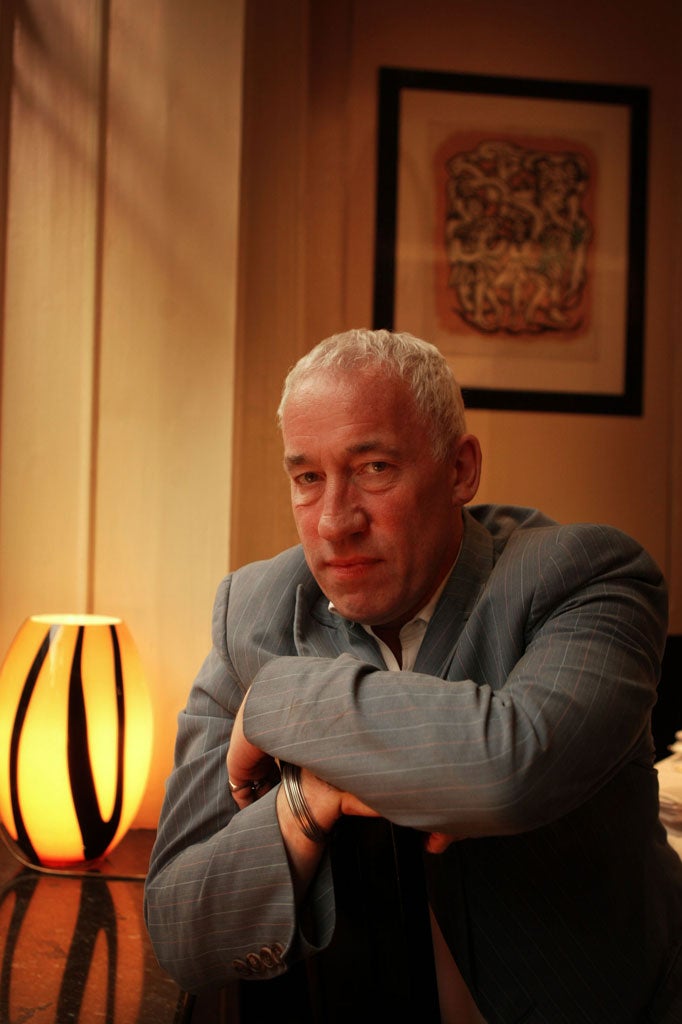Simon Callow: What the Dickens? Well, William Shakespeare was the greatest after all...

Your support helps us to tell the story
From reproductive rights to climate change to Big Tech, The Independent is on the ground when the story is developing. Whether it's investigating the financials of Elon Musk's pro-Trump PAC or producing our latest documentary, 'The A Word', which shines a light on the American women fighting for reproductive rights, we know how important it is to parse out the facts from the messaging.
At such a critical moment in US history, we need reporters on the ground. Your donation allows us to keep sending journalists to speak to both sides of the story.
The Independent is trusted by Americans across the entire political spectrum. And unlike many other quality news outlets, we choose not to lock Americans out of our reporting and analysis with paywalls. We believe quality journalism should be available to everyone, paid for by those who can afford it.
Your support makes all the difference.Acolytes of Charles Dickens were a little miffed when the Cultural Olympics committee announced that the chosen poster boy for British culture was to be William Shakespeare – a calculated rebuff for Dickens, we felt, on his 200th birthday. But Dickens would have been the first person to acknowledge the supremacy of Shakespeare, who, in the brief but ceaselessly productive 25 years of his writing career, gave as complete and as sublimely expressed an account of what it is to be human as anyone who ever wrote. How or why this should be is the subject of more thought, research, speculation and sheer fantasy than surrounds any other writer. But what has never been in doubt is the power, beauty and depth of the work.
Actors and producers immediately seized on the plays for their glorious roles and incomparable language. Only 50 years after his death, however, they were less certain about their theatrical decorum, and blithely amended them according to the canons of progressive new developments in taste; their morality was equally subject to revision: the good were allowed to end well, the evil were punished. When, from the beginning of the 18th century, the plays started to travel to European countries, their savagery, their bawdiness and their lack of obedience to the Laws of Drama handed down from the divine Aristotle were lamented, even as their translators and adaptors marvelled at the poetic riches of the language, the grandeur of the characters and the penetrating psychology. Voltaire was particularly torn: Shakespeare, he said, was overflowing with genius, "a genius full of strength and fecundity, of naturalness and sublimity, without the tiniest particle of good taste."
But resistance was futile. Bard-omania swept all before it: each different culture – German, Italian, Russian – was obliged to respond to the Shakespearean example; for the most part, they embraced it, and him, with joyous abandon, as the possibilities of language and character in action that he celebrated liberated writers across the continent.
The figure of Hamlet, in particular, was embraced by each nation as a reflection of its own essential nature; in Russia, Hamlet is considered the definitive summary of the Slavic soul. By the middle of the 19th century, Shakespeare had burst out of Europe into the then colonial world, where India and Africa and Hong Kong instantly saw his relevance to their world, their lives, their souls. Some of the most deeply affecting productions of Shakespeare have been non-English, and non-European. He is that unique writer: he has something for everyone.
So it is wonderfully appropriate that this master, this titan, this genius, so profoundly British and so effortlessly universal, should be at the forefront of the Cultural Olympics. Throughout the year, every aspect of Shakespeare will be celebrated and explored, in exhibitions like the one about the world he knew at the British Museum, curated by the great Neil MacGregor; in specially-mounted productions at the National Theatre and the Royal Shakespeare Company; above all in productions from all over the world. This is Shakespeare done every which way – deconstructed, reconstructed, unreconstructed, structured, unstructured – Shakespeare as a mouthpiece for the contemporary preoccupations of a nation, Shakespeare as meta-theatrical avatar, Shakespeare as supreme psychologist, Shakespeare esoteric, Shakespeare simple, Shakespeare sordid, Shakespeare sublime. Bring it on!
I haven't felt as excited by a theatrical season since the long gone and lamented days of the annual World Theatre Season at the Aldwych Theatre – and this is on a scale and for a duration far beyond those glorious seasons. This is an occasion not only for us to celebrate and rejoice in the work of Britain's greatest son, but also to learn from what the world has to tell us about him. Truly Olympic: heroic, ambitious, international. But unlike the Games themselves, there will be no winners, except for us, the audience, and him, the literary pentathlete, the glover's son, William Shakespeare, from Stratford-upon-Avon, in the county of Warwickshire.
Join our commenting forum
Join thought-provoking conversations, follow other Independent readers and see their replies
Comments